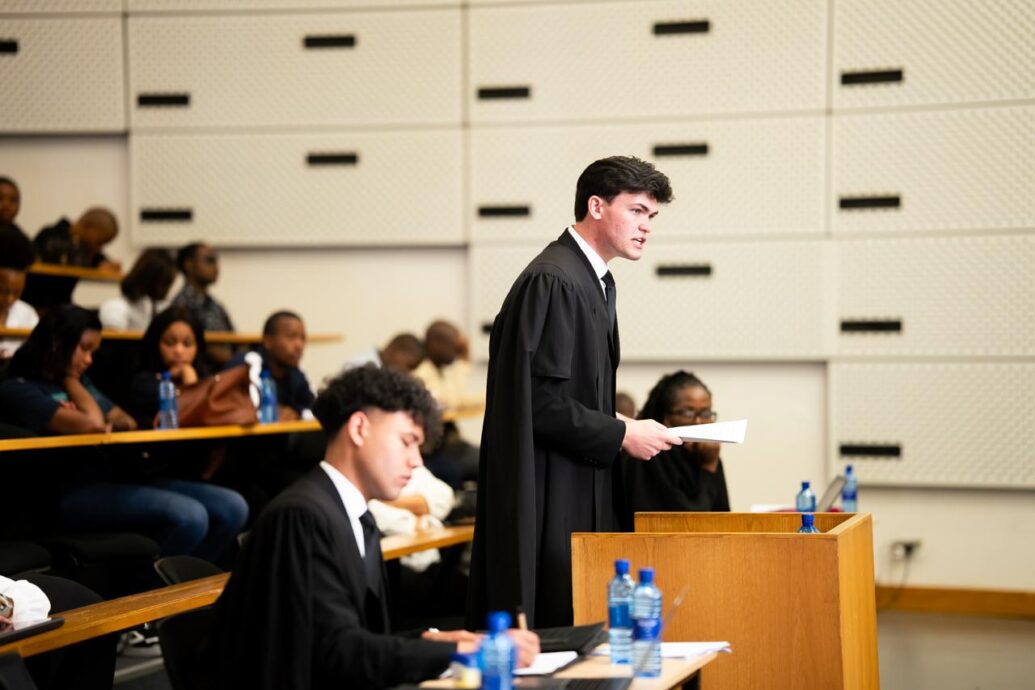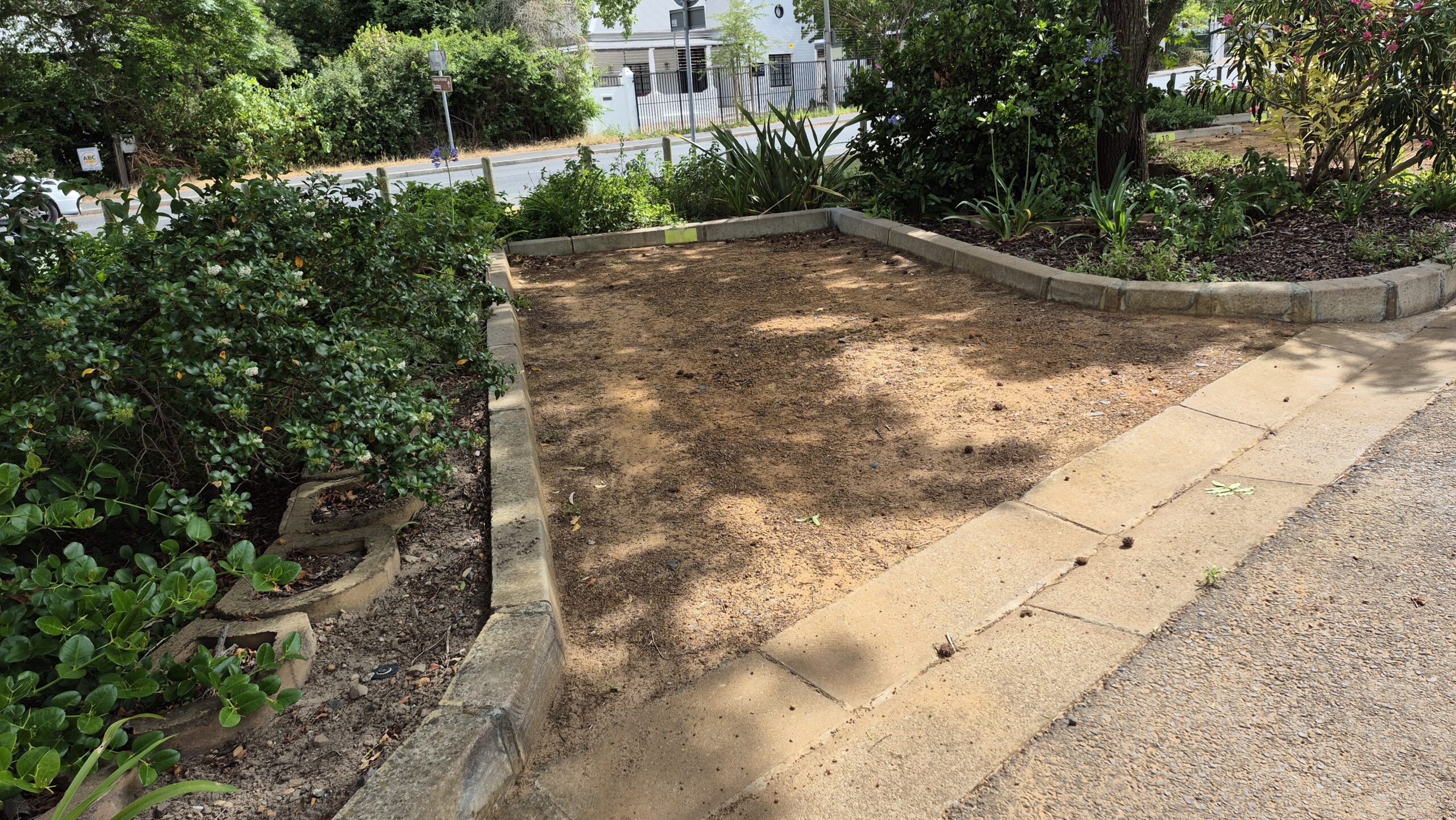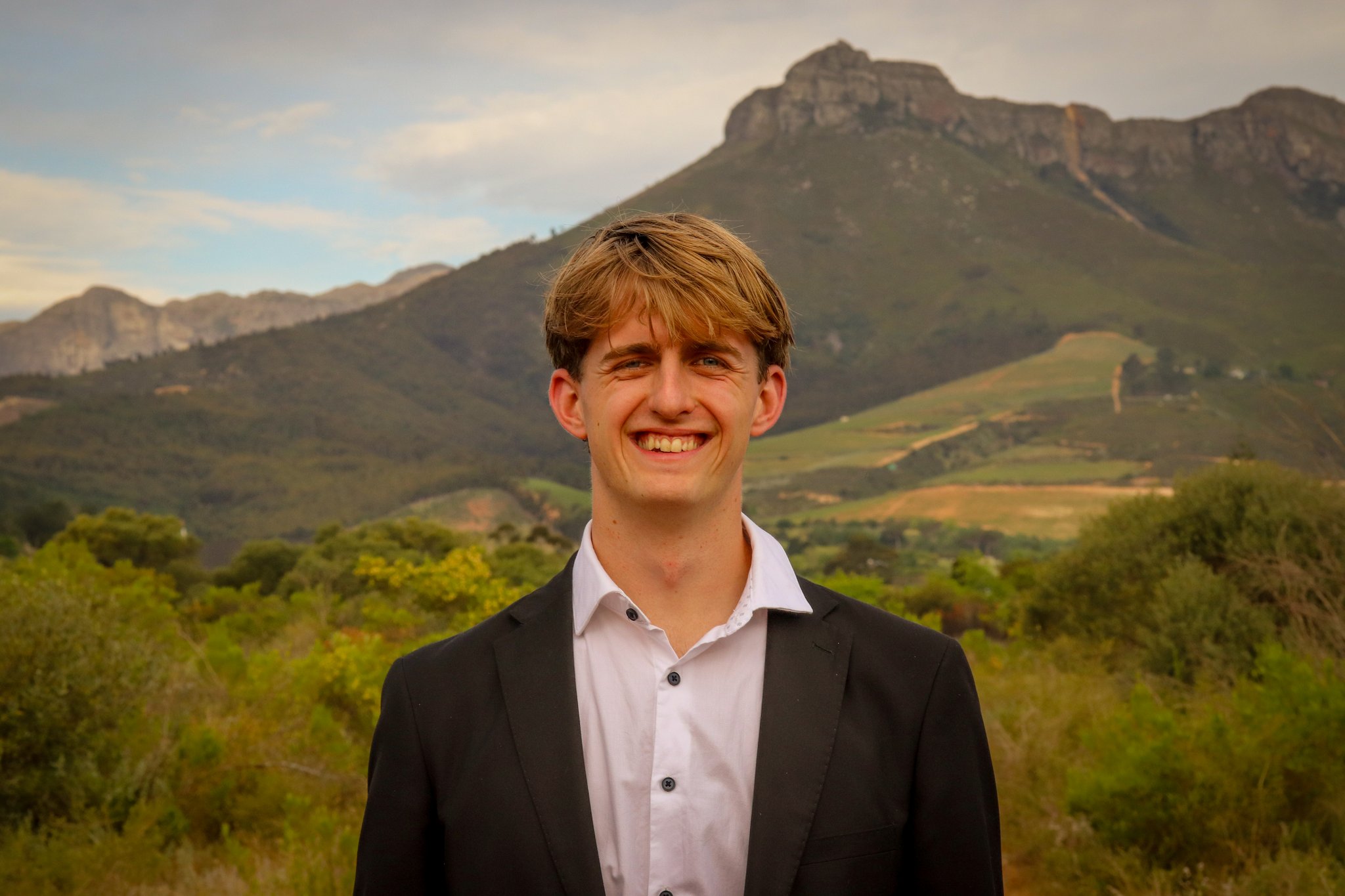By Lilja Flohr

At the 14th Annual Child Law Moot Court, Stellenbosch University (SU) competed in the national competition featuring top law schools across South Africa. The event took place from 19 to 20 September and was hosted by the Centre for Child Law and the University of Pretoria Faculty of Law. A moot is a mock judicial proceeding designed to examine a hypothetical case as an academic exercise. The competition tested participants on complex aspects of Child Law, emphasizing the best interests of the child, empathy, and the application of case law and legislation.
For the first time, SU’s Faculty of Law took the win and also placed third for Best Heads of Argument. While this alone is cause for celebration, it is particularly noteworthy that the two participants from SU were first-year students. Die Matie spoke with LLB student Taariq Abrahams and BAccLLB student Dirk Hagen about their experience.
Abrahams explained how representing the university “against some of the best mooters in the country is nerve-wracking but also one of the most exciting experiences”. For him, “courage is being scared but still doing it anyway”. Knowing they were first-years competing against senior students, he said that they decided that if they could not be “the most experienced team, [they] could be the most resilient team, and the best team.” The toughest moment, he recalled, was “taking that first step to stand behind the podium. After that, everything just flowed.”
Hagen described how the two “really function when the odds are against [them]. It made the experience more enjoyable, and [they] learned so much more out of it than [they] would have as third- or fourth-years.” They both knew, “We either had to go into it and win it, or forfeit that we would never win this competition, because you can only compete once.” Preparation, he said, was key as “when you stand in front of the bench, the only thing you have is your preparation and your legal mind”. By the end of the competition, the two “could practically finish each other’s sentences”, a synergy that “made the arguments coherent and natural”.
Hagen says, “[One of the most surprising aspects was] seeing the human side of the judges and advocates. You go in intimidated, but you realise they truly want to help you grow.” Reflecting on their victory, Abrahams said that “winning felt like witnessing a miracle. It reaffirmed that it’s not the strength of the person behind the stone, but the strength of the spirit behind it.” His advice “to anyone intimidated by mooting is: just do it. The most difficult part is taking that first step.” For him, “advocacy is not only about what you say, it is about how you say it. If you truly believe in your argument, the judges will feel it.”

Both students touched on the topic of child abandonment, the focus of this year’s moot. Abrahams said that the issue “really drew [him] to the moot as it is such a real issue in South Africa”, adding, “To have even a small hand in engaging with something that serious made it deeply meaningful.”
The two candidates were supervised and mentored by Jessica Swanson, Postgraduate LLB student and Moot Society member. She explained that “many students think mooting isn’t for them because they’re scared of speaking in front of people. They imagine it’s this big formal process meant for top students, but really, it’s a learning experience. The judges know you’re not advocates, they’re there to help you grow.” She is proud of the two as “every judge who saw them thought they were far beyond their years,” and they were “commended for their confidence, composure, and ability to think on their feet”.
Die Matie also spoke to the Dean of the Law Faculty, Professor Juanita Pienaar. She said she “was thrilled, but not entirely surprised, even though they are first years” as the “students showed exceptional dedication from the outset, and their success demonstrates the calibre of talent we attract to Stellenbosch”. Pienaar further explained how this “achievement validates Stellenbosch’s integrated approach to legal education”. The law faculty does not “simply teach doctrine” but rather tries “to cultivate practical advocacy skills from the first year”. In her opinion, first-years competing at this level “signals the strength of [their] foundational training and mentorship programmes, reinforcing Stellenbosch as a leading law faculty”. Pienaar encourages first-years to continue working hard as “preparation and commitment matter more than seniority” and if students are “willing to work hard and seek guidance, [they] can compete at any level”.
Swanson added that the win “gained a whole lot of attention”, and that the Faculty of Law has “seen a huge increase in interest in mooting this year. After Dirk and Taariq’s success, more students, especially first-years, are signing up because they can see it is achievable.” For her, “this win was not just about a trophy, it is about showing that with the right support and courage, students can accomplish things far beyond their expected level”. Hagen agrees, describing the victory as “a testament to the entire faculty. Lecturers, tutors, and fellow students supported us every step of the way.”
The win marks a proud moment for SU and its Faculty of Law, and proves that talent starts early. For the Faculty, it is both an inspiration and a reminder that excellence is not determined by experience, but by passion and preparation.



